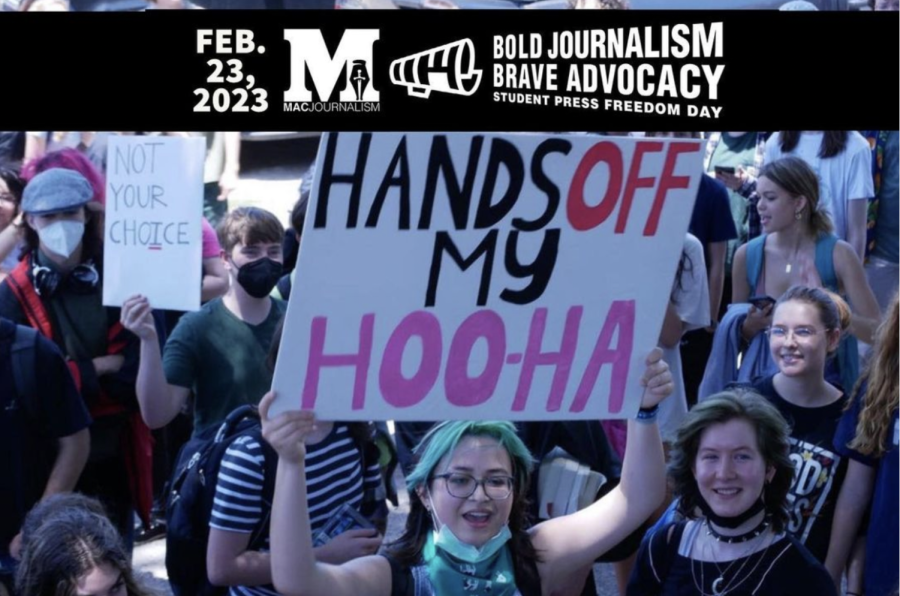In the state of Texas, students have the right to protest on school grounds but are not guaranteed freedom of expression through school publications. Photo of abortion rights walkout from May 2022 by Cilley Phan.
Tuesday, Feb. 21
February 25, 2023
For the second day of MacJournalism’s Student Press Freedom Week, the story of student freedoms continues.
Nineteen years after the Tinker v. Des Moines ruling, the Supreme Court made a decision that continues to impact students’ rights to a free press today.
In 1983, student journalists writing for The Spectrum, the school newspaper at Hazelwood East High School in St. Louis County, Mo., wrote and proofed articles about teen pregnancy and divorce at their high school.
In a landmark decision, the Court ruled 5-3 in the case of Hazelwood v. Kulhmeier that school administration has the right to censor student-sponsored expression (such as student media programs) if they have a ‘legitimate pedagogical concern.’
Before the issue was published, the school’s principal Robert Eugene Reynolds removed the two pages containing those stories from the paper. The Spectrum staff was not informed of this decision and was only made aware of the change when the papers were delivered to the school.
Student editor Cathy Kuhlmeier and student reporters Leslie Smart and Leanne Tippett decided to file suit against the district in January 1984. The case made its way through the lower courts and eventually was tried in the Supreme Court in 1988. In a landmark decision, the Court ruled 5-3 in the case of Hazelwood v. Kulhmeier that school administration has the right to censor student-sponsored expression (such as student media programs) if they have a “legitimate pedagogical concern.”
Because there was no set definition of a “legitimate pedagogical concern,” many school administrations have been able to practice rigid and arbitrary censorship of student publications. Since the ruling, a student-run grassroots movement called New Voices has been working to pass laws across the country prohibiting student censorship. Currently, there are 16 states with this type of legislation.
Over the next week, we will continue to inform you about the New Voices campaign and the work being done in Texas to protect student journalists from censorship. This Thursday, Feb. 23, you can show your support for student press freedom by picking up a black armband from room 134 to celebrate the fifth annual Student Press Freedom Day.
